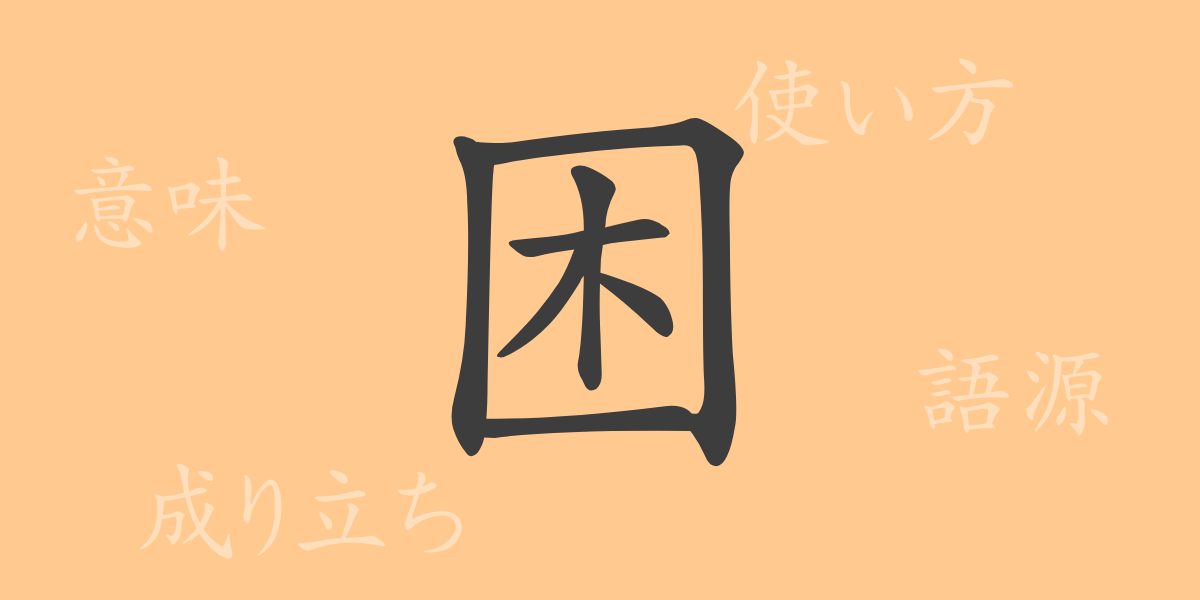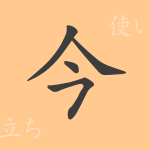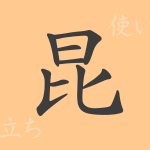Japanese contains numerous kanji, each with its unique history and meaning. “困(こまる, komaru)” is one of the commonly used kanji in everyday life, indispensable for expressing our emotions and situations. This article delves into the depth of the kanji “困(こまる, komaru),” exploring its origin, various uses, and significance.
Origin of 困(こまる, komaru)
The kanji “困(こまる, komaru)” dates back to ancient China. Originally, it was a pictograph combining “木(き, ki)” meaning “tree” and “囗(くにがまえ, kunigamae)” symbolizing being enclosed within a tree. This combination came to signify “difficulty” or “suffering,” thus being used to express situations of hardship or distress.
Meaning and Usage of 困(こまる, komaru)
The kanji “困(こまる, komaru)” includes meanings such as the verb “to be troubled” and nouns and adjectives like “difficulty” and “perplexity.” In Japanese, it is used to describe stumbling upon a problem or being in a tough situation. The phrase “困ったなあ(こまったなあ, komatta naa)” expresses exasperation or feeling overwhelmed by a situation.
Reading, Stroke Count, and Radical of 困(こまる, komaru)
The kanji “困(こまる, komaru)” has a relatively simple structure but carries deep meaning.
- Reading: The on’yomi (音読み) is “コン(kon),” and the kun’yomi (訓読み) is “こまる(komaru).”
- Stroke count: “困(こまる, komaru)” consists of 7 strokes.
- Radical: The radical is “囗(くにがまえ, kunigamae).”
Idioms, Phrases, and Proverbs Using 困(こまる, komaru)
There are numerous idioms, phrases, and proverbs containing “困(こまる, komaru),” showcasing the richness of Japanese expression. For example, “困難(こんなん, konnan)” refers to difficult situations or problems, and “困惑(こんわく, konwaku)” denotes a state of confusion or bewilderment. The proverb “困った時の神頼み(こまったときのかみだのみ, komatta toki no kami-danomi)” describes the human tendency to turn to divine intervention when in trouble, even if one does not usually practice faith.
Conclusion on 困(こまる, komaru)
The kanji “困(こまる, komaru)” is deeply embedded in our lives, used to express various situations and emotions. Despite its simple form, it holds a multitude of meanings, enriching Japanese expression. Through this article, we hope you have gained a better understanding of the thoughts and breadth of usage encapsulated in the kanji “困(こまる, komaru).”

























